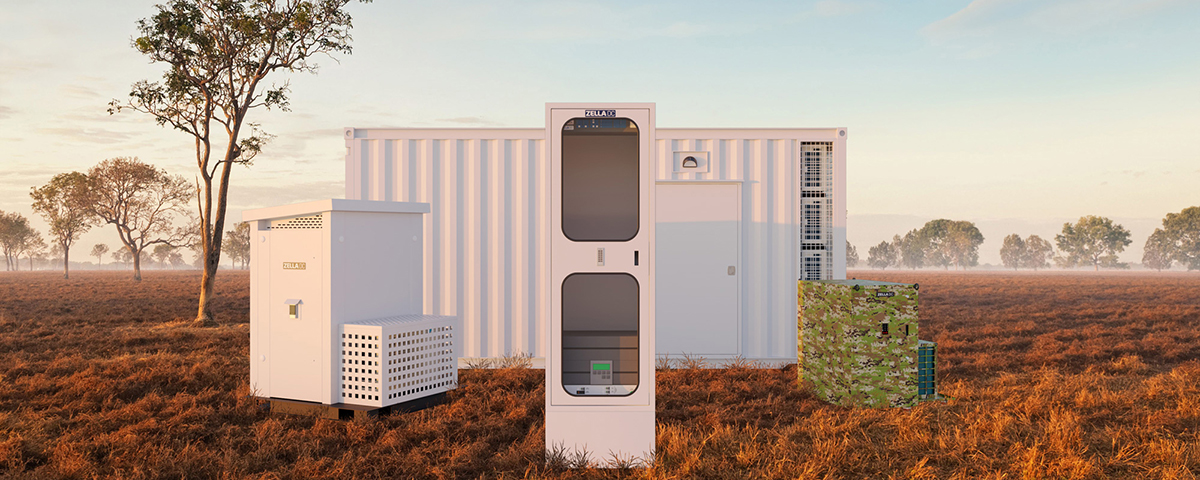In today’s hyper-connected world, the demand for real-time data processing has never been higher. The growth of the Internet of Things (IoT), smart devices, autonomous systems, and AI applications has driven enterprises to look for solutions that bring data processing closer to the point of origin – this is where edge computing steps in. However, to fully leverage the benefits of edge computing, businesses need infrastructure capable of supporting the low-latency, high-efficiency demands of modern applications. Micro data centres are proving to be the go-to solution for this.
In this blog, I will explain how micro data centres meet the core requirements for edge computing, helping organisations thrive in an increasingly digital-first environment.
What is edge computing?
Edge computing is a distributed IT architecture that processes data at the edge of the network, near the source of data generation. Instead of sending data to a centralised cloud or data centre for processing, edge computing enables faster, more efficient data processing right at the site where it’s needed, reducing latency and optimising bandwidth usage.
But edge computing has its own set of unique requirements that need to be met for businesses to take full advantage of its potential. These include low latency, localised data processing, robust security, cost-effectiveness, scalability, and sustainability. Let’s look at how micro data centres are the perfect match for these edge computing needs.
1. Meeting low latency requirements
One of the most critical aspects of edge computing is the need for low latency. Traditional data centres, which are often located far from the site where data is generated, cannot deliver the real-time processing needed by today’s applications, such as autonomous vehicles, industrial IoT, and AR/VR. The further data has to travel, the longer it takes to process, resulting in delays that can hinder operations.
Micro data centres are purpose-built for edge computing as they are designed to be deployed close to the source of data generation, whether in remote industrial locations, urban environments, or on-premises. By processing data locally, micro data centres drastically reduce latency, enabling real-time decision-making and improved application performance.
2. Localised data processing and storage
In the age of big data, the ability to process and store data locally is paramount. While cloud computing offers immense storage and processing power, transferring large amounts of data to a centralised location can strain networks and incur high costs. This challenge becomes especially apparent in industries like healthcare, finance, and manufacturing, where sensitive data needs to be processed quickly and securely.
Micro data centres provide an efficient solution to this by offering localised data processing and storage. Rather than sending every piece of data to the cloud or a distant data centre, businesses can process critical data on-site, only sending non-essential data to the cloud for long-term storage. This allows companies to reduce bandwidth usage, lower data transfer costs, and optimise performance.
3. Robust security at the edge
With cyber threats on the rise, security is a top priority for businesses adopting edge computing solutions. Traditional cloud data centres can introduce vulnerabilities, as data often has to traverse long distances, increasing the risk of interception and breaches. In contrast, micro data centres are designed with comprehensive security measures to safeguard data at the edge.
At Zella DC, our micro data centres come equipped with features like biometric access control, encryption, firewalls, and real-time monitoring, ensuring that data remains secure at every stage. Additionally, localised data processing minimises the amount of sensitive information that needs to be transferred, reducing the risk of data breaches during transmission. Our products also feature physical security to protect your data and assets, even in unstaffed locations.
4. Cost-effective edge computing infrastructure
Implementing edge computing doesn’t have to be a costly endeavour. In fact, micro data centres offer a cost-effective alternative to traditional large-scale data centres. They are more affordable to deploy and maintain due to their compact size, energy efficiency, and modular design. This makes them an ideal choice for businesses looking to extend their edge computing capabilities without breaking the bank.
Our micro data centres at Zella DC are engineered for rapid deployment, allowing businesses to scale their infrastructure as needed without incurring hefty costs. Their modular nature means they can be tailored to the specific requirements of each deployment, ensuring that businesses only pay for what they need.
5. Scalability for growing edge requirements
As businesses grow, so do their data processing needs. The flexibility to scale infrastructure is crucial in edge computing environments where data volumes can fluctuate. Traditional data centres often require significant time and investment to scale up, which can hinder business growth and innovation.
Micro data centres provide a scalable solution for edge computing environments. Their modular design allows businesses to start small and expand their infrastructure as needed. For example, Zella DC’s micro data centres are built with scalability in mind, ensuring businesses can seamlessly add more capacity to meet future edge computing demands.
6. Sustainability and energy efficiency
Sustainability is becoming increasingly important as businesses strive to reduce their carbon footprint. Traditional data centres consume vast amounts of energy, contributing to greenhouse gas emissions. Micro data centres, on the other hand, are designed to be energy-efficient and environmentally friendly.
At Zella DC, we prioritise sustainability by incorporating precision cooling systems, energy-efficient components, and renewable energy options such as solar power into our micro data centres. This not only reduces energy consumption but also lowers operational costs for businesses, making it a win-win for both the environment and the bottom line.
7. Reliability and resilience
Edge computing environments can be harsh, whether they are deployed in remote locations, industrial sites, or urban areas. This places additional demands on the infrastructure, which must be resilient enough to withstand physical and environmental challenges.
Zella DC’s micro data centres are built to endure. With features like IP-rated enclosures, advanced cooling systems, and fireproofing, our micro data centres are designed to operate in challenging conditions. This ensures reliable uptime and performance, even in environments with fluctuating temperatures, humidity, or other external factors.
The future of edge computing is micro
As businesses across industries continue to adopt edge computing, the demand for reliable, secure, and scalable infrastructure will only increase. Micro data centres, with their low-latency processing, localised storage, robust security, and cost-effectiveness, are uniquely positioned to meet these evolving needs. At Zella DC, we are committed to providing cutting-edge micro data centre solutions that empower businesses to succeed in the fast-paced world of edge computing.
Whether you’re looking to enhance real-time data processing, improve operational efficiency, or reduce IT costs, micro data centres are the key to unlocking the full potential of edge computing.
By focusing on the specific requirements of edge computing and how micro data centres address them, businesses can make informed decisions about their IT infrastructure strategy. Get in touch today to find out more about how our micro data centre solutions can help your business stay ahead of the curve.






